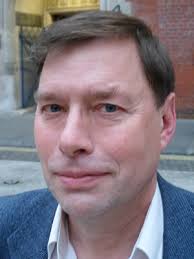With the UK set to become the most unequal of rich countries, the Conservative government’s policies are constantly being criticised for widening, rather than tackling, inequality. But when it comes to alternatives, could Corbyn’s answers to economic problems be more than wishful thinking? Do the rich have a special wealth-creating talent, and are those living on welfare inactive and passive, as media and politicians tend to portray them? Some of our most read 2015 articles tackle these questions. For more on the theme of Society and Economy, click here.
Introducing the ‘class’ ceiling

 The hidden barriers, or ‘glass ceiling’, preventing women from getting to the top are well documented. But as Sam Friedman and Daniel Laurison explain, the upwardly mobile also face a powerful and previously unrecognised ‘class ceiling’ within Britain’s elite occupations.
The hidden barriers, or ‘glass ceiling’, preventing women from getting to the top are well documented. But as Sam Friedman and Daniel Laurison explain, the upwardly mobile also face a powerful and previously unrecognised ‘class ceiling’ within Britain’s elite occupations.
Corbyn and the political economy of nostalgia
 Voting for Jeremy Corbyn as leader is a gut reaction to Labour’s electoral defeat. Corbyn does point to some real economic problems facing Britain but his policies are based largely on the kind of wishful thinking that is endemic in UK politics and both blights Labour’s past. His popularity lies in Labour’s failure to defend its own record in government. The party needs to learn from its successes as well as its evident recent failures if it wants to re-build, writes John Van Reenen.
Voting for Jeremy Corbyn as leader is a gut reaction to Labour’s electoral defeat. Corbyn does point to some real economic problems facing Britain but his policies are based largely on the kind of wishful thinking that is endemic in UK politics and both blights Labour’s past. His popularity lies in Labour’s failure to defend its own record in government. The party needs to learn from its successes as well as its evident recent failures if it wants to re-build, writes John Van Reenen.
The realities of living on welfare are significantly different from government and media characterisations
 Ruth Patrick considers the extent to which there is a (mis)match between government and media rhetoric and the lived experiences of those directly affected by welfare reform. Her research demonstrates the very hard ‘work’ which ‘getting by’ on benefits entails, ‘work’ which serves to counter characterisations of claimants as passive and inactive. She argues that attending to the lived experiences of welfare reform is critical in helping us to understand the day-to-day realities of ‘getting by’ in contemporary Britain.
Ruth Patrick considers the extent to which there is a (mis)match between government and media rhetoric and the lived experiences of those directly affected by welfare reform. Her research demonstrates the very hard ‘work’ which ‘getting by’ on benefits entails, ‘work’ which serves to counter characterisations of claimants as passive and inactive. She argues that attending to the lived experiences of welfare reform is critical in helping us to understand the day-to-day realities of ‘getting by’ in contemporary Britain.
We need to challenge the myth that the rich are specially-talented wealth creators
 In this article Andrew Sayer revives some concepts – ‘unearned income’, ‘rentiers’, ‘functionless investors’, and ‘improperty’ – to explain why the very rich are unjust and dysfunctional. We need to challenge the myth that the rich are specially-talented wealth creators, he argues.
In this article Andrew Sayer revives some concepts – ‘unearned income’, ‘rentiers’, ‘functionless investors’, and ‘improperty’ – to explain why the very rich are unjust and dysfunctional. We need to challenge the myth that the rich are specially-talented wealth creators, he argues.
The politics of inequality: Atkinson, Piketty and Stiglitz at the LSE’s International Inequalities Institute

 The LSE’s new International Inequalities Institute has hosted three major thinkers on inequality: Tony Atkinson, Thomas Piketty and Joseph Stiglitz. In this article, Mike Savage and John Hills discuss what emerged out of these events, writing that the politics of inequality will undoubtedly become increasingly central to public debate.
The LSE’s new International Inequalities Institute has hosted three major thinkers on inequality: Tony Atkinson, Thomas Piketty and Joseph Stiglitz. In this article, Mike Savage and John Hills discuss what emerged out of these events, writing that the politics of inequality will undoubtedly become increasingly central to public debate.






